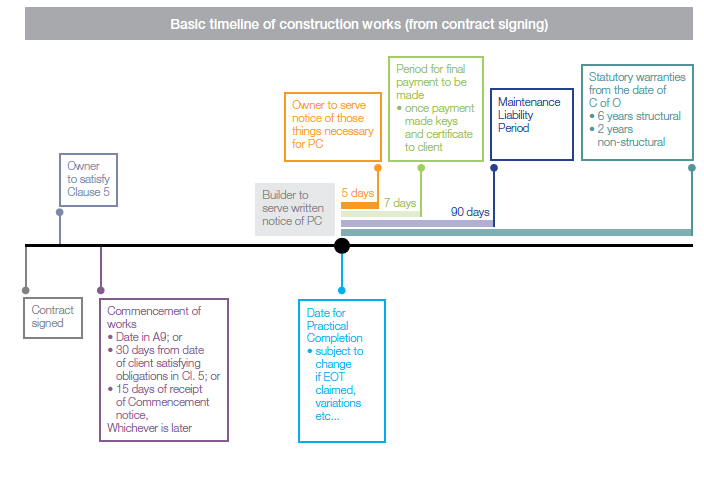
This is often a contentious issue between builders and clients and is one that should be agreed prior to signing the contract. Under your contract, the builder will have exclusive right to access and possession of your land for the purposes of the building works. You should not hinder or prevent the building works from progressing, nor should you be directing the builder’s employees or subcontractors in any way. Remember, your inspections should be in accordance with what your contract says or as agreed in the special conditions.
If you are renovating an existing house, but you remain in occupation during the course of the building works, it will be slightly different. Remember your obligations under your contract and do your best to let the builder do their works without too many interruptions.
You should discuss this with your builder prior to signing the contract. All builders will prefer different methods of communication – and you should also note that this might also be different to what your preferred method would also be.
Keep in mind that your builder might not be immediately available to respond to your email as they may be on site, or should not be expected to answer calls after hours or on the weekends unless of an emergency situation. Communication is key to ensuring a good relationship during the course of the build.
A Progress Payment relates to the written claim for works completed to a particular stage in accordance with the progress payment schedule contained in your contract. The claim for a progress payment should be issued to you upon the completion of a particular milestone under the contract and may contain any variations to the building works, if applicable.
A prime cost item is an item (such as a fitting or fixture) that has either not been selected or the amount of the specified item is not known at the time of signing the contract. The allowance provided generally does not include installation and is for the supply of the item only. Examples of a prime cost item may include but are not limited to door handles, taps, tiles.
A provisional sum item is an estimate of the cost of carrying out particular work which includes the cost of the supply and fixing of materials. An allowance will usually be provided in the contract to allow for works where the costs cannot be entirely foreseen at the time of signing. Examples of provisional sum items include but are not limited to site excavation, asbestos removal and joinery works.
It will depend on what is to be changed – and the impact that it might have on the course of the building works. Sometimes, a builder will ask you for selections at a time after the contract is signed. Your best bet would be to speak directly to your builder about what you would like to have changed. Keep in mind that if there are additional works required, or additional costs if you have chosen another product, there is also likely to be an increase to the contract price. If this is the case, the builder may require you to sign a variation.
Clause 17 of the ACT Home Building Contract deals specifically with variations and the process that is to be followed should a variation to your contract be required.
The builder can seek your instructions as to a substitute product if a specified material is not available but please note that this will be at the builder’s sole and absolute discretion. If substitute materials are supplied by the builder, the materials must be of equal quality and standard.